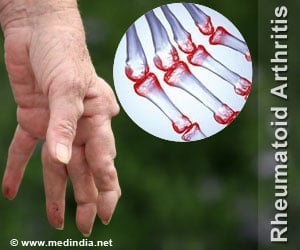Experts vouch for the ancient martial art known as Tai Chi- especially for its gifts of healing the mind and body.
Experts vouch for the ancient martial art known as Tai Chi- especially for its gifts of healing the mind and body. Yet regardless of whether you support the theory that the mind and body contain a mysterious and potentially healing force or not, the ancient martial art known as Tai Chi can help bring about health and fitness.
Says Dr. Michael Irwin, a professor of psychiatry and a researcher at the Semel Institute for Neuroscience and Human Behavior, part of the University of California, Los Angeles, School of Medicine: “Unlike more strenuous physical activities, Tai Chi's slow, balanced movements are very accessible to older adults or patient populations that may have some physical limitations.”Irwin who has conducted much research into the subject says that Tai Chi, which originated centuries ago in China, is a series of slow-moving movements, which have a meditative quality, incorporating both physical movement as well as meditation.
Practitioners, who swear by Tai Chi's ability to calm body and soul, are known to talk about chi and the discipline's ability to restore a yin-yang physiological balance to this "life energy.”
Yet, Irwin says that though there is currently no way to scientifically validate these theories, he is unmoved as “there are lots of things in the world that we do not understand because we do not yet have a way to measure them."
What he and other experts in the field have done is comparing the health of Tai Chi devotees against that of more sedentary types. Using a standard "Medical Outcomes Scale," researchers have shown that there are robust improvements in physical function, like performing simple things such as carrying groceries, climbing stairs, etc.
One reason to this is because Tai Chi, while seemingly slow, is surprisingly good exercise. Says Irwin: "There are a number of studies on Tai Chi and its aerobic effects that show that metabolism increases, and there's physical conditioning over time.”
Advertisement
Irwin says that though no one has yet done a study on Tai Chi's effect on depression, two UCLA studies did note significant improvements in mood in non-depressed people who took up the practice.
Advertisement
"Understanding that helps you develop and do what you're doing correctly.
“I have students who say it's helped their blood pressure, their balance got better, they now get around better. For younger people, too, their energy level tends to be higher after Tai Chi.
“ I always feel a lot better,” he concluded.
Today, with the art and exercise of tai chi growing in popularity, scientists have found that older adults who practice this martial art strengthen themselves against the tiny chickenpox virus, which can cause a painful and often persistent nerve inflammation called shingles.
The new study, published in the Journal of the American Geriatric Society, is the first of a series of rigorous new studies designed to investigate the health effects of tai chi.
Also are studies examining whether regular practice can help patients contending with heart disease, osteoarthritis and cancer fight off threats such as depression, infection and the pain of joint inflammation. Other studies are looking into whether tai chi can improve balance and reduce falls among elderly people, and improve the well-being of patients with HIV.
"Tai chi is clearly an exercise program, but it has something more," says Andrew Monjan, chief of the National Institute on Aging's neurobiology of aging branch. "It seems to be somewhat more effective than simple exercise and more effective than simple stress reduction." And older adults enjoy it, he said, making it a therapy patients will stick to.
For healthy older adults, the study demonstrated a striking immunity-boosting effect. After 16 weeks of tai chi classes - even before they received chickenpox vaccine - subjects practicing tai chi showed immunity levels to chickenpox (and hence to shingles) comparable to those of 30- and 40-year-olds who got the vaccine. After the tai chi practitioners received the dose, their immune response surged by 40 percent.
Compared with a similar group of older adults who did not practice tai chi but received a shot of vaccine and a 16-week health-education program, those who practiced tai chi built stronger immunity to chickenpox and to shingles. They also showed significant improvements in measures of physical functioning, vitality and mental health.
Source-Medindia
ANN/V






